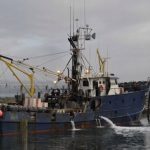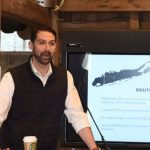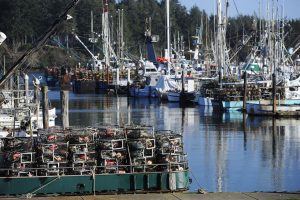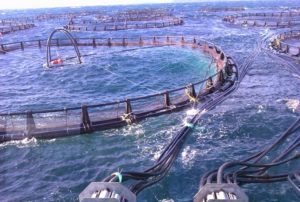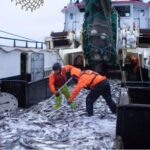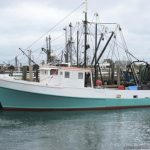Tag Archives: MAFMC
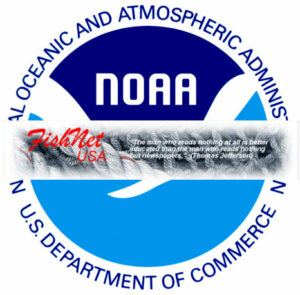
Fisheries management isn’t supposed to be robbing Peter to pay Paul
MAFMC and ASMFC Approve Changes to Commercial and Recreational Allocations of Summer Flounder, Scup, and Black Sea Bass,,, For all three species, these changes result in a shift in allocation from the commercial to the recreational sector. At the same time, using the same “scientific” rationale to disguise what seems nothing more than a blatantly political decision, the Gulf of Mexico Fishery Management has recommended that the red grouper fishery also be reallocated,,, If NOAA/NMFS is allowed to continue using the new MRIP Fishing Effort Survey, every mixed use fishery from Maine through Texas should expect attempts at quota allocation shifts from the commercial to the recreational sector. >click to read< By Nils Stolpe/FishnetUSA 13:52
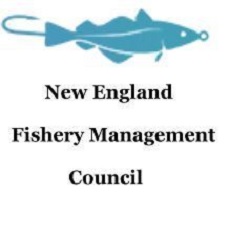
New England Joins Mid-Atlantic to Require eVTRs for Vessels with Federal Commercial Permits for Council-Managed Species
The New England Fishery Management Council is taking steps to bring all commercial fishermen who hold federal permits for Council-managed species into the digital age by requiring vessel trip reports (VTRs) to be submitted electronically instead of on paper. These electronic reports are known as eVTRs, and this proposed action will apply to all of the Council’s fishery management plans. The Mid-Atlantic Fishery Management Council (MAFMC) has been working since December of 2018 on a Commercial eVTR Omnibus Framework Actionthat would apply to all vessels with federal commercial permits for MAFMC-managed species, which include,,, >click to read< 17:41
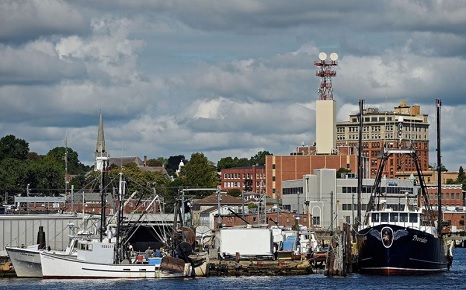
More fluke could be coming for Connecticut fishermen
Last week, the MAFMC and the ASMFC increased the annual coastwide commercial quota for summer flounder for 2019-21 to 11.53 million pounds. While states will continue to receive allocations based on their historic landings up to 9.55 million pounds, landings after that will be divided equally among mid-Atlantic and southern New England states.>click to read<10:33
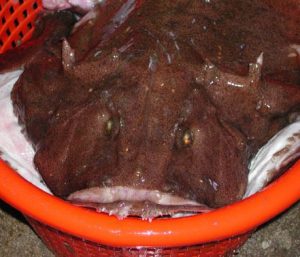
2018-2019 Monkfish Research Set-Aside (RSA) Program
Three new cooperative research projects announced today will improve understanding of monkfish biology and how to reduce catch of skates in monkfish gillnet gear. The projects are possible because of an innovative program established by the New England and Mid-Atlantic Fishery Management Councils, and managed by NOAA Fisheries in the region. Under it, monkfish fishing days are set-aside each year and revenue generated from the sale of those days are used to pay for research projects. Award recipients for the 2018-2019 Monkfish Research Set-Aside (RSA) Program include the Coonamessett Farm Foundation, Cornell Cooperative Extension of Suffolk County, and the University of New England. >click to read<10:08
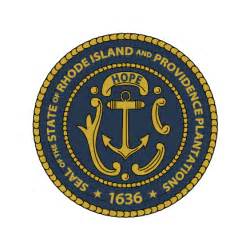
Rhode Island Congressional Delegation opposes squid buffer zone
From the letter: We write to urge you to reject the proposed creation of a squid buffer zone in federal waters in the vicinity of Martha’s Vineyard and Nantucket and have enclosed the attached letter from Janet Coit, Director of Rhode Island Department of Environmental Management, expressing the states opposition to this proposal. We have consulted with state regulators and fishermen from Rhode Island who have emphasized that in the words of Director Coit’s letter “there is no biological basis for considering buffer zones to protect or rebuild the squid stock.” click here to read the letters 17:20
Battle over blueline tilefish intensifies-SAFMC requested emergency action for East Coast
 In a move that’s certain to heighten tensions over the management of blueline tilefish, the South Atlantic Fishery Management Council has requested emergency action that will extend the regulations governing the fishery in its jurisdiction to the entire east coast. The MAFMC became concerned for the stock when commercial fishing boats out of North Carolina made it known they planned on landing tilefish in New Jersey, which has no limit on catches. There is no fishery management plan — or available science Read the rest here 16:25
In a move that’s certain to heighten tensions over the management of blueline tilefish, the South Atlantic Fishery Management Council has requested emergency action that will extend the regulations governing the fishery in its jurisdiction to the entire east coast. The MAFMC became concerned for the stock when commercial fishing boats out of North Carolina made it known they planned on landing tilefish in New Jersey, which has no limit on catches. There is no fishery management plan — or available science Read the rest here 16:25
MAFMC to Hold Scoping Hearings for Squid Capacity Amendment: April 6 – 21, 2015
 The amendment would likely consider a variety of approaches for reducing capacity in the squid fisheries, such as a requalification of permits, a tiered limited access system, and/or individual fishing quotas (also known as “catch shares”). If the Council decides to move forward with an amendment, a range of alternatives would be developed for analysis and additional public comment. Meetings and dates here 13:49
The amendment would likely consider a variety of approaches for reducing capacity in the squid fisheries, such as a requalification of permits, a tiered limited access system, and/or individual fishing quotas (also known as “catch shares”). If the Council decides to move forward with an amendment, a range of alternatives would be developed for analysis and additional public comment. Meetings and dates here 13:49
MAFMC meeting Wednesday to consider emergency action on blueline tilefish, may include harvest reductions
 Yet those involved in the fishery say no emergency exists and it’s just another instance of poor data and faulty management at work. One reason behind the emergency action was that the MAFMC became aware that a commercial long-liner out of North Carolina was planning on targeting blueline tilefish within the council’s jurisdiction and landing the fish in New Jersey. The long-liner picked New Jersey because there are no landing limits, whereas states further south have limits on blueline tilefish. Read the rest here 20:19
Yet those involved in the fishery say no emergency exists and it’s just another instance of poor data and faulty management at work. One reason behind the emergency action was that the MAFMC became aware that a commercial long-liner out of North Carolina was planning on targeting blueline tilefish within the council’s jurisdiction and landing the fish in New Jersey. The long-liner picked New Jersey because there are no landing limits, whereas states further south have limits on blueline tilefish. Read the rest here 20:19
NEFMC and MAFMC propose new bycatch reporting system for Northeast fisheries

 The Mid-Atlantic and New England fishery management councils jointly proposed the revision. They want the revision to apply to all 13 fishery management plans in the area. The proposal involves not only a standardized reporting and monitoring method, but also new procedures for observers, new set-asides and more. It would change the way NMFS operates framework adjustments. It covers 40 species and 14 types of fishing gear. Read the rest here 22:40
The Mid-Atlantic and New England fishery management councils jointly proposed the revision. They want the revision to apply to all 13 fishery management plans in the area. The proposal involves not only a standardized reporting and monitoring method, but also new procedures for observers, new set-asides and more. It would change the way NMFS operates framework adjustments. It covers 40 species and 14 types of fishing gear. Read the rest here 22:40
Summer flounder ‘scoping’ meeting a new twist for fishermen

 Last week was the first summer flounder (fluke) “scoping” meeting for me and many others. The Mid-Atlantic Fishery Management Council (MAFMC) and the Atlantic States Marine Fisheries Commission (ASMFC), both responsible for managing summer flounder in our State, held a summer flounder scoping meeting. Read the rest here
Last week was the first summer flounder (fluke) “scoping” meeting for me and many others. The Mid-Atlantic Fishery Management Council (MAFMC) and the Atlantic States Marine Fisheries Commission (ASMFC), both responsible for managing summer flounder in our State, held a summer flounder scoping meeting. Read the rest here
The First Indicator – Looking Back. The 2nd indicator, looking forward.
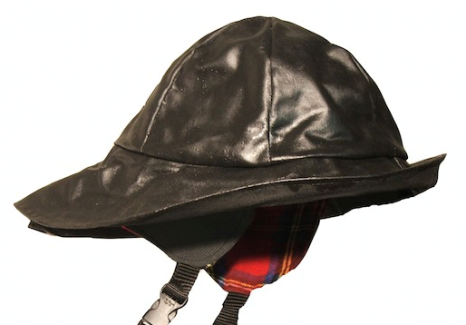 Let me say first off, no one ever accused me of being smart, not even me. I learned at an early age what a stupid son of a bitch was, and I learned it the hard way.,, “This is pretty dire,” said Russell Brown, deputy science and research director of the Northeast Fisheries Science Center, the branch of NOAA that did the research. Warning! Savory language ahead. Not to be read if offended easily! Read more here 09:06
Let me say first off, no one ever accused me of being smart, not even me. I learned at an early age what a stupid son of a bitch was, and I learned it the hard way.,, “This is pretty dire,” said Russell Brown, deputy science and research director of the Northeast Fisheries Science Center, the branch of NOAA that did the research. Warning! Savory language ahead. Not to be read if offended easily! Read more here 09:06
Oceana Challenge to Fishery Rules Defeated
 – The government need not face claims that its amended guidelines for mid-Atlantic fisheries do not protect vulnerable species from overfishing, a federal judge ruled. Read more here 15:14
– The government need not face claims that its amended guidelines for mid-Atlantic fisheries do not protect vulnerable species from overfishing, a federal judge ruled. Read more here 15:14
MAFMC Meeting February 11- 13, 2014 Kicks off with workshop on Climate Change and Fisheries Science – Listen Live
 We are kicking off our February meeting today with a workshop on Climate Change and Fisheries Science. Agenda items can be found here Listen live@adobe connect 10:00
We are kicking off our February meeting today with a workshop on Climate Change and Fisheries Science. Agenda items can be found here Listen live@adobe connect 10:00
December 2012 MAFMC Council Meeting – Register to Attend via Webinar. Wednesday, December 12, 2012 8:00 AM – 6:00 PM EST
Shad Resurgence Marks a Cleaner Delaware River
American shad were once so common that East Coast rivers were described as being “black” and “boiling” as tens of millions of fish migrated upstream each spring to spawn. Today, approximately 98 percent of the fish that formed a staple of the Colonial diet have been depleted. In rivers once teeming with shad, a daily catch is sometimes counted in the single digits………Shad — the name comes from the Latin, Alosa sapidissima, meaning “most delicious, or savory, herring” — are just one part of this larger effort, but a critical part. The fish is considered a marker for the overall health of the rivers and tribu……..Protecting the Fisheries…….Historical Comparisons…..Midwater Trawling…….Hydraulic Fracturing……..Removing Dams…….Rescuing the Raritan River…….A Holistic Approach……..Climbing the Ladder….. http://www.wnyc.org/articles/new-jersey-news/2012/sep/24/shad-resurgence-marks-cleaner-delaware-river/


































